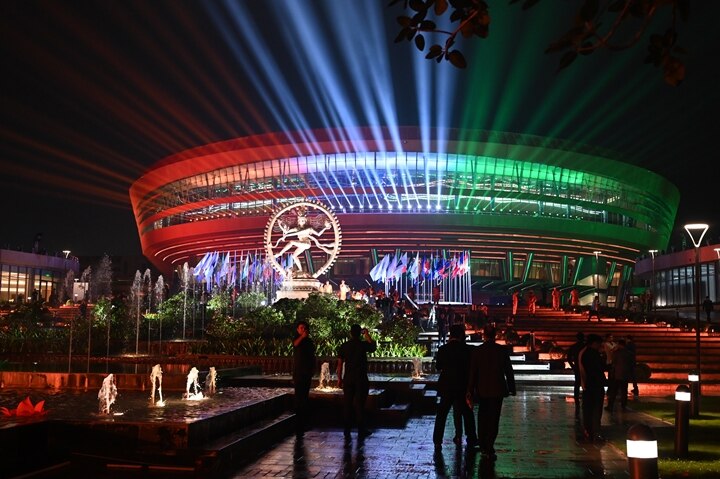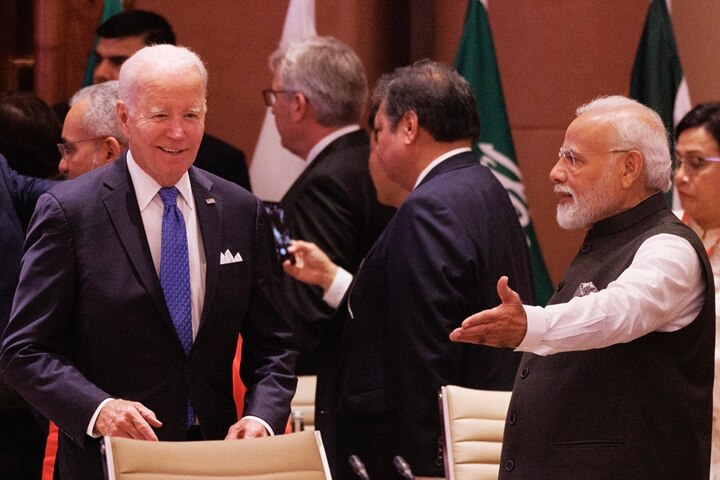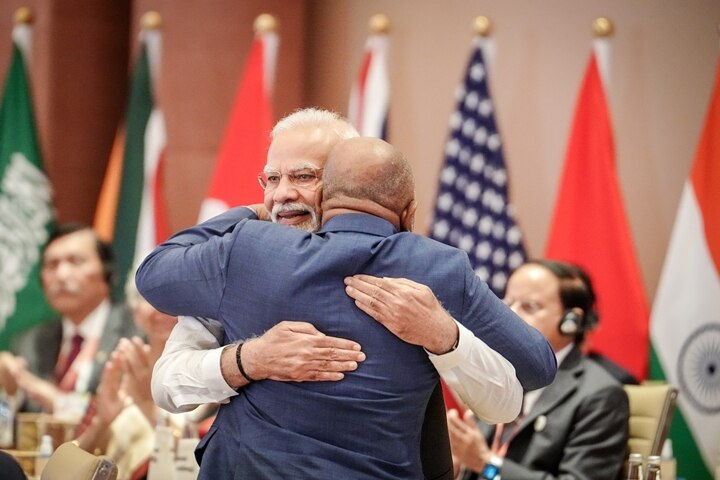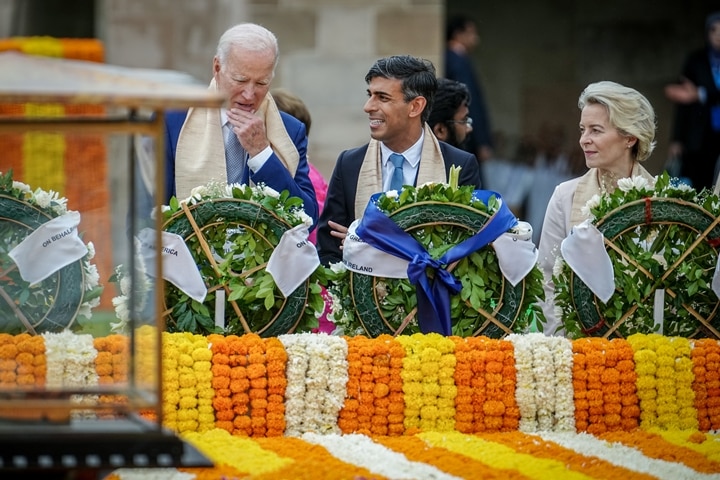How India Steered The G20 Under Its Maiden Presidency Despite Challenges
[ad_1]
G20 Summit: Pulling off the diplomatically challenging task of reaching a consensus on the Russia-Ukraine conflict, getting the African Union admitted to the bloc, and cementing its position as the ‘Voice of the Global South’, India showed its moment had arrived at the international stage as it successfully hosted the G20 Summit on September 9 – 10 that also gave Prime Minister Narendra Modi a platform to boost his standing ahead of the 2024 Lok Sabha election.
From US President Joe Biden, British Prime Minister Rishi Sunak, German Chancellor Olaf Scholz to Turkish President Recep Tayyip Erdogan all were present for the Summit. However, the only glaring absence was that of Chinese President Xi Jinping, who became the first Chinese leader ever to skip a G20 Summit level meeting. Interestingly, Russian President Vladimir Putin also skipped the meet as he wanted to “focus on Ukraine”. He did not attend the previous Summit too which was held in Bali, Indonesia.
As the host, New Delhi also took upon the chance to flaunt its culture, artwork and cuisine as the national capital got a makeover and also a swanky new conference venue — the Bharat Mandapam at Pragati Maidan. In fact, according to an RTI filed by ABP Live, the Centre spent Rs 10,29,50,273 on advertisements and outdoor publicity.
With Brazil taking over the G20 presidency as the world sees the addition of another conflict between Israel and Hamas in Gaza, let us rewind and take a look at how India managed a diplomatic victory at the highest-profile international multilateral gathering ever to be hosted by the country.

Reaching Consensus On Ukraine War
While the absence of Chinese President Xi and Russian President Putin did put a question mark on India’s diplomatic ability to bring in all the G20 members, New Delhi was able to unite all by burning the midnight oil and managing to bring out a consensus between the West-led G7 grouping and the Russia-China bloc on the Russia-Ukraine conflict. Prime Minister Narendra Modi said India was able to garner “100 percent consensus” of the G20 member countries on the joint statement. India’s G20 Sherpa Amitabh Kant, the consensus was a result of almost 200 hours of non-stop negotiations.
Members were first given a draft which was initially rejected by by the West, especially the European Union (EU). However, on the eve of the G20 Summit, New Delhi forwarded an amended version of the text to all members that had changed language particularly on Ukraine, and that set the ball rolling even though the criticism against Russia was not as sharper as the West had wanted.
The G-20 New Delhi Leaders’ Declaration upheld Ukraine’s “territorial integrity and sovereignty” while steering clear of any condemnation of Russia, unlike in last year’s Bali G20 Summit where Moscow was “deplored in strongest terms” for its “aggression” against the eastern European nation. The Declaration, while endorsing PM Modi’s stand that “today’s era is not be of war”, underlined the use, or threat of use, of nuclear weapons to be “inadmissible”.

African Union In G20, Major Economic Corridor Announced
While the softening of the language on Russia was not much to the West’s liking, it, however, managed to clinch a deal to launch an ambitious economic corridor, through rail and waterways, to connect India with West Asia and Europe. US President Joe Biden called the corridor, being seen as a rival to China’s Belt and Road initiative, “a really big deal”.
The India-Middle East-Europe Economic Corridor, involving India, UAE, Saudi Arabia, EU, France, Italy, Germany, and the US, will see trade between India and Europe 40 per cent faster, European Commission President Ursula von der Leyen said at the summit.
Another significant outcome of the Delhi summit that was reached in the first day itself was the entry of the African Union into the G20. The admission of the grouping of 55 African nations, which has been vehemently pursued by India, was seen as a move to provide a greater voice to the ‘Global South’ within the G20 bloc. The G20, ever since its formation in 1999, has mostly been dominated by G7 countries (Canada, France, Germany, Italy, Japan, the United Kingdom and the United States).

Bharat, Trudeau, Chinese Bag: What Grabbed Eyeballs
However, the G20 summit had its fair share of controversies as well. Even before the event began, a row erupted over dinner invitations sent to world leaders using the word “Bharat” and not “India”, leading to speculation that the government was planning to change the name of the country. Even PM Modi’s placard at the summit read “Bharat”, kicking off a war of words between the ruling BJP and Opposition.
During the summit, a major standoff reportedly unfolded at the Taj Palace hotel after security personnel raised an alarm over the Chinese delegation carrying a bag with “unusual dimensions”. Suspicions intensified after a hotel employee noticed an “equipment” concealed in the bag following which the Chinese delegation was asked to send it for scanning. The impasse, which lasted for over 12 hours, eventually ended after the Chinese delegation agreed to send the bag in question to their embassy.

As the curtains came down on the summit, giving flight to India’s goal to become a developed country by 2047, the flight of Canadian Prime Minister Justin Trudeau failed to take off due to a technical glitch, stranding him in India for another two days.
The two days, however, gave an opportunity to the media to highlight how Trudeau was given the cold shoulder in India — reports swirled on how Trudeau declined a presidential suite at the hotel, there was no ‘welcome note’ from PM Modi, and how he was publicly criticised by the PM for allowing “anti-India activities of extremist elements” from Canadian soil.
[ad_2]
Source link